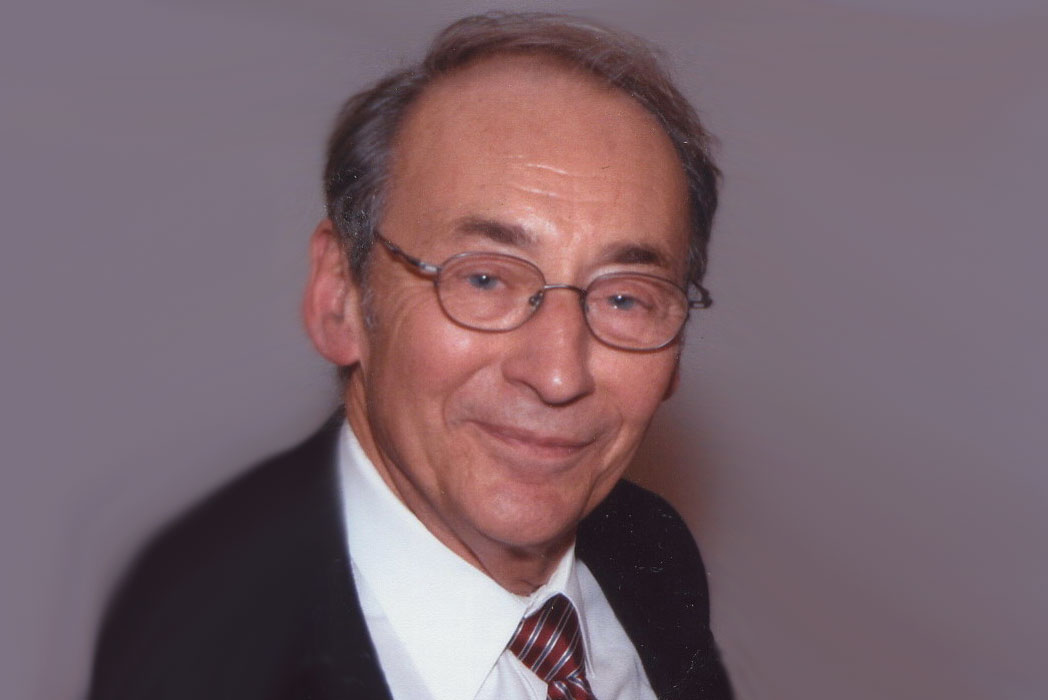
(Vienna, 20-04-2020) Prof. Dr. Gerhard Giebisch died in Branford, Connecticut on 06 April, aged 93. With his death, the international nephrology community is losing one of its most outstanding members, a special scientist but, above all an extraordinary person and humanist, who was an example and dear friend to many of us. We commiserate with his two children, their families and his grandchildren, his family that was always "a major source of his strength" to him. "They provided the grounding, security and love that made it all possible," as he once put it.
Gerhard Giebisch was born in Vienna in 1927 and graduated from the University of Vienna. His medical career began in 1951, at the Institute of Pharmacology in Vienna (Prof. Brücke). In 1952, he went to work in the USA, first on an internship in Milwaukee and then as a fellow at the Department of Physiology at Cornell University in New York. Between 1953 and 1954 he spent a period of time with Dr. Robert Pitts, one of the leading nephrologists of the time, and this was to shape the rest of his career. In 1957, after a year in Vienna, he took up an offer to return to Cornell University Medical College as Assistant Professor of Physiology. In 1960 he was appointed Associate Professor at Cornell University and then Full Professor in 1965.
It was in no small part due to his personality that he was given the Chair of Physiology by Yale University in 1968 and was appointed Sterling Professor of Physiology in 1970. It was under his leadership that the department became a leading international centre for nephrology, an intellectual hub and scientific home for more than 75 researchers, who came to New Haven from all over the world as fellows with a view to taking up leading scientific posts in their native countries following their training and time spent with Gerhard Giebisch. He was always a benevolent and outstanding mentor to his students and always maintained friendships with them over the years. We have him and his colleagues – whom he never tired of praising – to thank for our understanding of the physiological and molecular mechanisms of electrolyte, and especially potassium, transport along the renal tubules.
Gerhard Giebisch received the highest honours from many national and international expert associations and universities, including the Homer W. Smith Award, the John P. Peters Award of the American Cancer Society of Nephrology, the A.N. Richards Award of the International Society of Nephrology and the Ernst Jung Prize from the German Jung Foundation.
On the basis of his extraordinary scientific achievements, he was accepted as a member of the National Academy of Sciences of the United States, the American Academy of Arts and Sciences and the Austrian Academy of Sciences. In addition to honorary doctorates from many universities, he was awarded an honorary doctorate from the University of Vienna in 1997. Gerhard Giebisch was President of the American Society of Nephrology, the Society of General Physiologists, a member of the Executive Committee of the International Society of Nephrology, Council Member of the American Physiological Society and at the National Institute of Health. He is an honorary member of the Austrian Society of Internal medicine (ÖGIM) and the Austrian Society of Nephrology (ÖGN).
As well as more than 400 peer-reviewed publications, his scientific legacy includes standard works such as "The Kidney – Physiology and Pathophsiology" and "Genetic Diseases of the Kidney".
Despite all his commitments, he never forgot his Austrian roots and for many years he gave a series of lectures at the Medical University of Vienna as a visiting professor, where he inspired many students and aspiring internists on the subject of "electrolytes and the kidneys".
However, all these cornerstones of his impressive scientific work only represent a fraction of the person that was Gerhard Giebisch. We count ourselves lucky to have had the privilege to get to know many other facets of his personality as well. He had a wide range of interests. He loved the mountains and especially the Dolomites. Classical music, philosophy and literature, economics, politics and travel were among his varied passions and interests. Even in these "non-renal" areas, his knowledge was extensive.
All of his friends remember his extraordinary charisma, his humility and warmth, his high moral values, his integrity, his kindness and his unconditional generosity in his support of others.
When he was presented with the John P. Peters Award in 2006, he was described as "one of the most beloved figures in the history of nephrology".
And that is what Gerhard Giebisch will remain to us, even in the future.
We will always treasure our memories of him.
Bruno Watschinger and Rainer Oberbauer
Department of Medicine III
Division of Nephrology and Dialysis
Medical University of Vienna